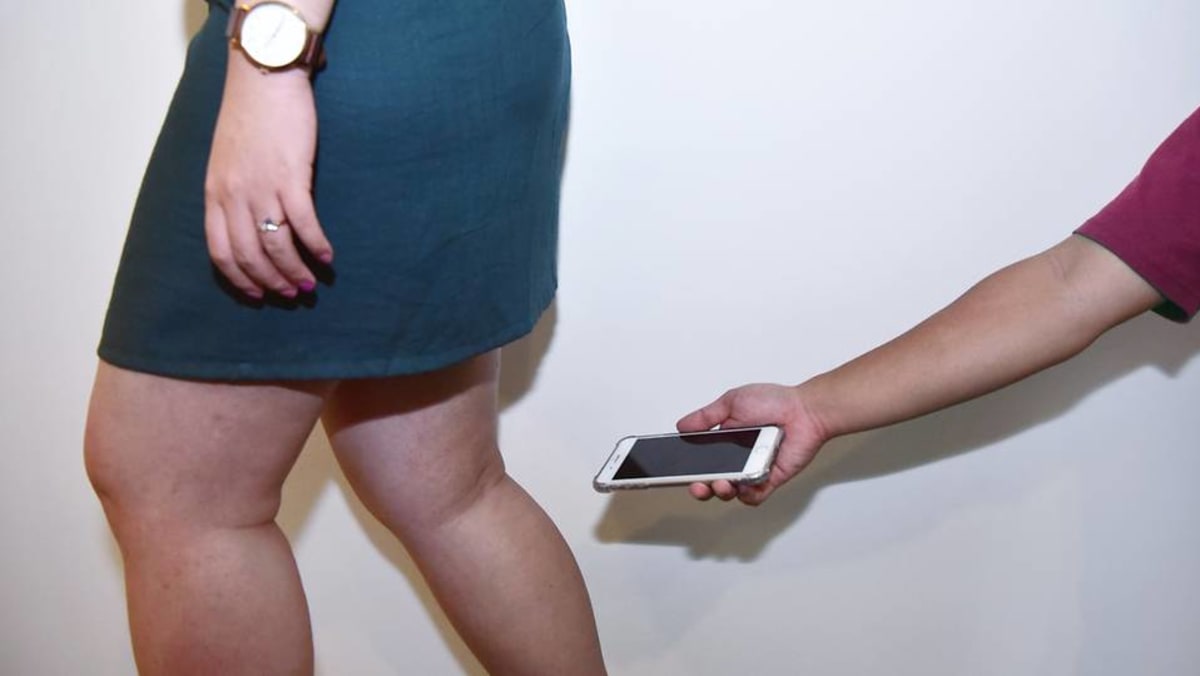
SINGAPORE: A man who appealed against his seven-week sentence for voyeurism including on campus when he was an undergraduate at Nanyang Technological University (NTU) had his jail term cut to four weeks on Friday (Feb 17).
At the same time, the High Court set out a sentencing framework for a specific type of voyeurism where an offender operates equipment to observe a victim’s private parts without consent.
Nicholas Tan Siew Chye, 27, had been sentenced to seven weeks’ jail in June last year after pleading guilty to two counts of voyeurism.
The first had taken place in October 2020, when Tan spotted a 20-year-old woman while on his way to visit his girlfriend’s hall of residence in NTU.
He followed the woman before squatting at a lift lobby to take an upskirt video of her. The woman noticed it and reported the incident to campus security.
Tan was arrested and released on bail, but reoffended in February 2021. He squatted and took an upskirt video of a 17-year-old girl in her school uniform while they were both in a lift at a Housing Board block.
Tan was a 24-year-old student in his final year of undergraduate studies at NTU when he committed the offences.
He was dissatisfied with the jail term meted out by the district judge and filed an appeal for a sentence that did not involve jail.
TAN’S APPEAL
Tan’s lawyers, Quek Mong Hua and Wong Wai Keong Anthony of Lee & Lee, argued that rehabilitation should be the primary sentencing consideration instead of deterrence.
They said Tan had an extremely strong propensity for reform, pointing to the active steps he took post-offence to seek psychiatric intervention.
The three-judge panel, comprising Chief Justice Sundaresh Menon and Justices Tay Yong Kwang and Vincent Hoong, found that Tan had not shown an extremely strong propensity for reform.
They said they were “particularly troubled” that Tan fought hard to prove that his offence was a result of a voyeuristic disorder, only to drop this argument later.
This was an attempt to evade consequences and suggests Tan’s lack of willingness to accept responsibility for what he did, said the court.
However, they said they “are willing to accept that the appellant has shown some propensity for reform”. This included his efforts to seek psychiatric help.
Even if Tan had displayed an extremely strong propensity for reform, the emphasis would still be on deterrence, the court said.
It would rarely be the case that emphasis should shift away from deterrence to rehabilitation, even when an adult voyeur has demonstrated an extremely strong propensity for reform, the judges added.
Only exceptional circumstances would justify deviation from this, said Justice Hoong, who delivered the verdict on behalf of the court.
This is because the impact of a voyeurism offence “extends beyond the particular victim concerned because it offends the sensibilities of the general public and triggers unease”, said Justice Hoong.
Such an offence involves “an appalling attempt to invade the victim’s privacy” and is an affront to society’s fundamental value that no woman or man should have to suffer the indignity of having his or her modesty outraged or insulted.
A deterrent sentence is usually warranted as voyeurism offences often inflict significant emotional harm on the victim, Justice Hoong said.
There is also an increasing prevalence of voyeurism offences, in part attributable to technological advances, he said.
NEW SENTENCING FRAMEWORK
However, Tan received three weeks’ less jail as a result of the appeal because of the sentencing framework newly set out by the High Court.
The framework included two stages and five steps where factors like the harm caused, invasion of the victim’s privacy and whether the offender kept the voyeuristic image are considered.
When the court applied the new framework to Tan’s case, it found that both offences fell in the low harm category.
Although Tan had invaded the victims’ privacy, the degree was limited, as he observed their covered genitals for a brief period of time and deleted the recordings shortly after.
The judges also found that Tan’s culpability was in the low category. Accordingly, after factoring in his guilty plea, cooperation with authorities, some propensity for reform and the fact that he reoffended on bail, they sentenced him to four weeks’ jail.
